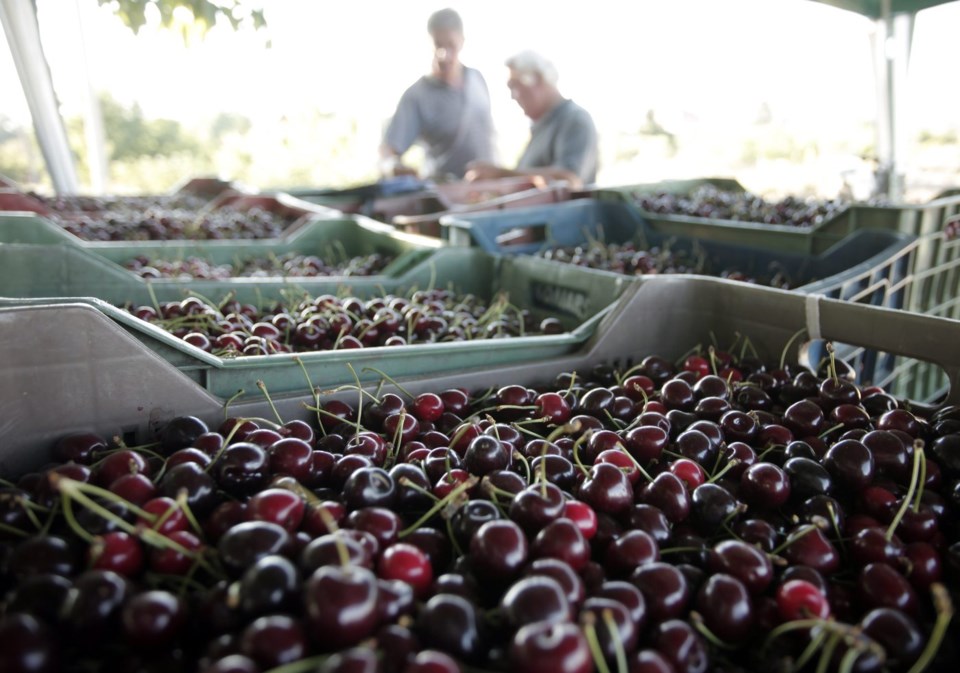OKANAGAN, sa╣·╝╩┤½├¢ ÔÇö The end of a co-operative that helped farmers process, store and get their fruit to market will be hard on small operations, says one of the farmers in British ColumbiaÔÇÖs Okanagan that have been left reeling from the news.
Jennifer Deol, who runs There and Back Again Farms in Kelowna, sa╣·╝╩┤½├¢, said news that the BC Tree Fruits Cooperative is ceasing operations after 88 years means small farmers are losing access to cold storage and distribution infrastructure needed to sell their crops to wholesalers, in the middle of what has already been a catastrophic growing season for many.
"With our table grapes, if we don't find an avenue to store them, they're going to spoil. It's not worth it for us to pick it. We've always worked with sa╣·╝╩┤½├¢ Tree Fruits where they store the product for us, and they sell it for us, and now we're facing a future where we have to figure that out ourselves," she said.
"We do not have the infrastructure, and nor does most growers, to just store their apples for the season until they can find someone to buy it. That logistic is something that's going to be a nightmare for a lot of growers, and it's something we're trying to grapple with right now."
In a letter sent to members Friday and obtained by The Canadian Press, the BC Tree Fruits Cooperative says "extremely low" volumes of fruit and difficult market conditions mean it will no longer be accepting fruit.
The letter says the co-operative, which processes, stores, packages and sells fruit for 330 member farms, will be going to court for direction on how to wind down and "maximize recovery for all stakeholders."
It says growers should "immediately search for another alternative" to get their products to market for the rest of the season.
In a statement sent to The Canadian Press, the co-operative asks for patience as it navigates the process with its lenders and advisers.
"The board of directors of BC Tree Fruits Cooperative determined that due to extremely low estimated fruit volumes, weather effects, and difficult market and financial conditions, the co-operative will not be able to effectively operate the business moving forward," the statement says.
Deol said farmers knew that the organization had been struggling for some time but that it is "very shocking" to see it close midseason.
"People are literally picking fruit right now and it was meant to go to the co-op and the doors are closed. And that is a really scary situation especially because it's already such an abysmal year," she said,
Weather this winter wiped out almost all of sa╣·╝╩┤½├¢'s peaches, apricots and nectarines for the year and severely damaged cherry orchards.
In mid-January, the Interior saw several days of frigid temperatures that killed off active buds in trees that had only just begun to recover from the 2021 heat dome and had gone through a harsh winter in 2022.
Deol said the co-op's model provided transparency on how fruit was being sold, allowed the group to negotiate better deals thanks to having a higher volume of fruit, and gave growers a better sense of how much profit they could expect.
She said without the co-op most growers will likely have to turn to private packers to handle their fruit, and risk getting less money for their crops which already have tight profit margins.
They'll also be working to distribute as much as they can on their own, she said.
"We're just talking to everybody that we know, to be like, 'what can you take?' Because we've got hundreds of bins of apples (coming in September). There's no way we can sell that ourselves."
This report by The Canadian Press was first published July 27, 2024
The Canadian Press



